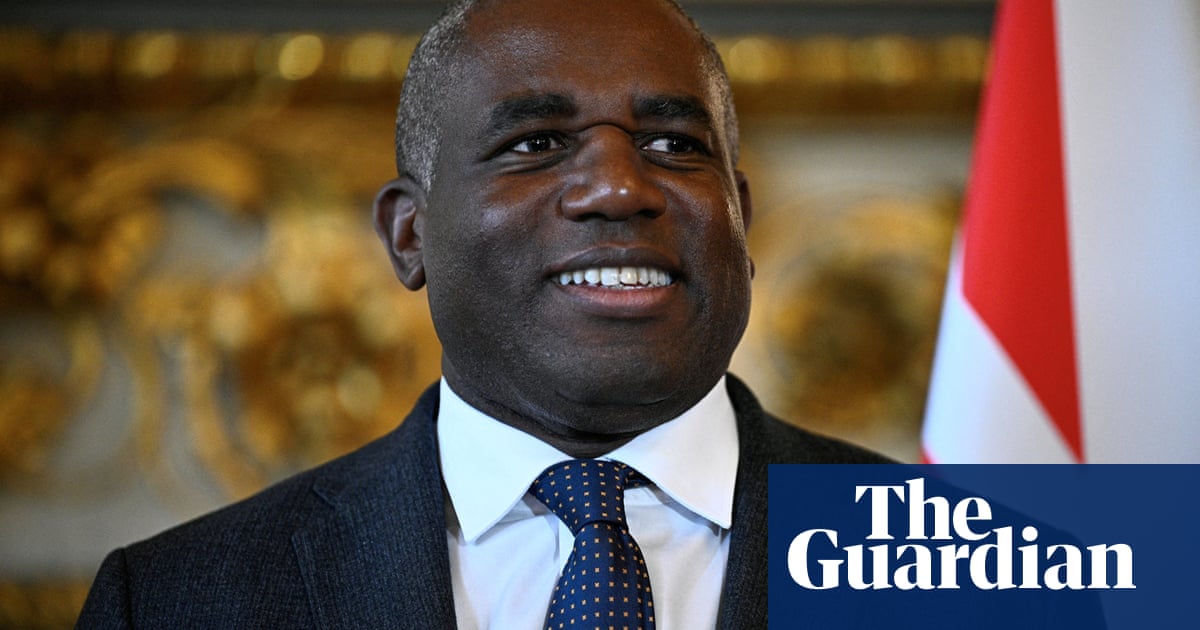David Lammy, the foreign secretary, will host US and European negotiators for fresh talks about Ukraine on Wednesday amid speculation that Russia has told Washington it might be willing to drop its claim to parts of Ukraine it does not occupy.
The price would include the US making concessions to Moscow such as recognising the 2014 annexation of Crimea, though Ukraine’s presidentVolodymyr Zelenskyysaid no such proposal had been shared with him by the White House and that his country could not endorse it.
It had been hoped that Marco Rubio, the US secretary of state, would attend the talks, but the Department of State said on Tuesday that would no longer be possible and that Keith Kellogg, the White House’sUkraineenvoy, would be present instead.
The meetings in London take place amid European scepticism that the Russian leader is willing to end the war, reinforced by events over Easter weekend, whenUkraine reported of thousands of violations of a short truceannounced by Russian president Vladimir Putin.
John Healey, the defence secretary, told the Commons that the UK agreed with Ukraine that the Russian leader’s public pledges were not borne out by military reality.
“Despite President Putin’s promise of a 30-hour pause in fighting, I can confirm that Defence Intelligence [an MoD unit] has found, and I quote ‘no indication that a ceasefire on the frontline was observed over the Easter period’,” he told MPs.
“So, while Putin has said he declared an Easter truce – he broke it. While Putin says he wants peace – he rejected a full ceasefire. And while Putin says he wants to put an end to the fighting – he continues to play for time in negotiations.”
On Tuesday, Zelenskyy said that Russia had continued to bomb the frontline with first-person view drones over Easter, though he said that the attackers had scaled back the number of operations and did not use long-range weapons.
Healey also said he would meet Ukrainian defence minister, Rustem Umerov, “as the government is bringing together US, UK and European ministers and national security advisers to discuss next steps”.
Ukrainian sources indicated that foreign secretary Andrii Sybiha was expected in London to meet Lammy, Kellogg and delegations from France and Germany at meetings expected to last throughout the day.
Healey said the meetings in London would include discussion of “what a ceasefire might look like and how to secure peace in the long term”. Despite nearly three months of talks led by the White House there has been no breakthrough in ending the war.
European officials believe Moscow is not ready to agree to a ceasefire because Putin has not abandoned his efforts to dominate Ukraine while talks between the Kremlin and the White House continue.
Russia has been demanding that Ukraine hand over the entirety of four eastern and southern regions its forces only partly occupy. That would include Kyiv ceding Kherson, which its forces recaptured in November 2022, and Zaporizhzhia city, proposals Ukraine would not be able to accept.
But the FT reported on Tuesday thatthe Kremlin would soften its demands in direct discussions with the US, and would accept a freezing of the conflict on the frontline if the US that agreed that Crimea, seized by Moscow in 2014, belonged to Russia.
However, Zelenskyy ruled out recognising Crimea as Russian territory. “There is nothing new to mention or discuss. Ukraine will not recognise the occupation of Crimea,” he said, pointing out that it would be incompatible with Ukraine’s constitution.
No details of any revised peace plan had been formally shared with Kyiv, Zelenskyy added. He said discussions should take place in the London format, rather than through the media, with the UK, France and the US as participants.
Putin floated on Tuesday that he wasopen to direct negotiations with Ukraine, which would be the first time the two countries had held peace discussions since spring 2022. This could involve discussing the issue of not striking civilian targets, his spokesperson, Dmitry Peskov, later added.
Zelenskyy said that he believed Putin wanted the US to give up its attempts to broker a settlement, leaving Russia to pursue its goals via military means, but he insisted he did not want to lose the White House as a strategic ally.
“Russia is the historic enemy of America. I believe the US is the real leader [in the peace process]. We want them to participate and exert pressure on Russia,” he said.
The US is expected to relay Ukraine’s response to Putin after the London meetings. Steve Witkoff, who is a close friend of Donald Trump and his informal envoy, is set to visit Moscow later this week. Witkoff has held three in-depth meetings with Putin, and his apparently warm relationship with the Kremlin has raised concerns in Ukraine that he may be amplifying Russian narratives.
